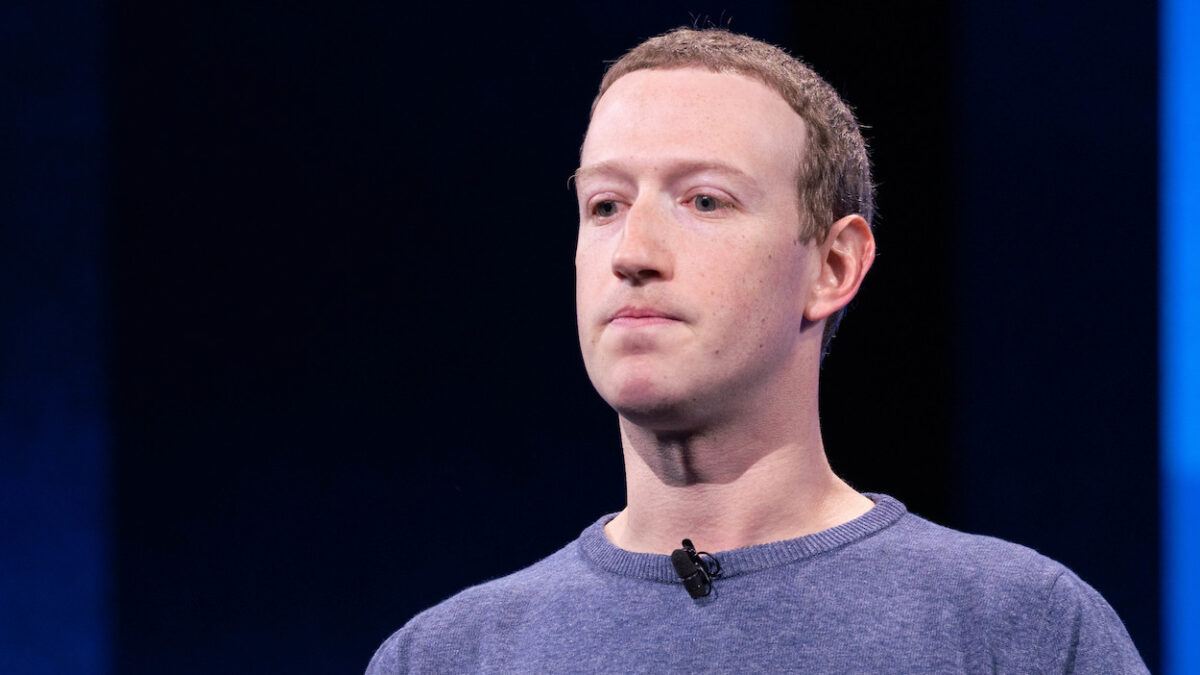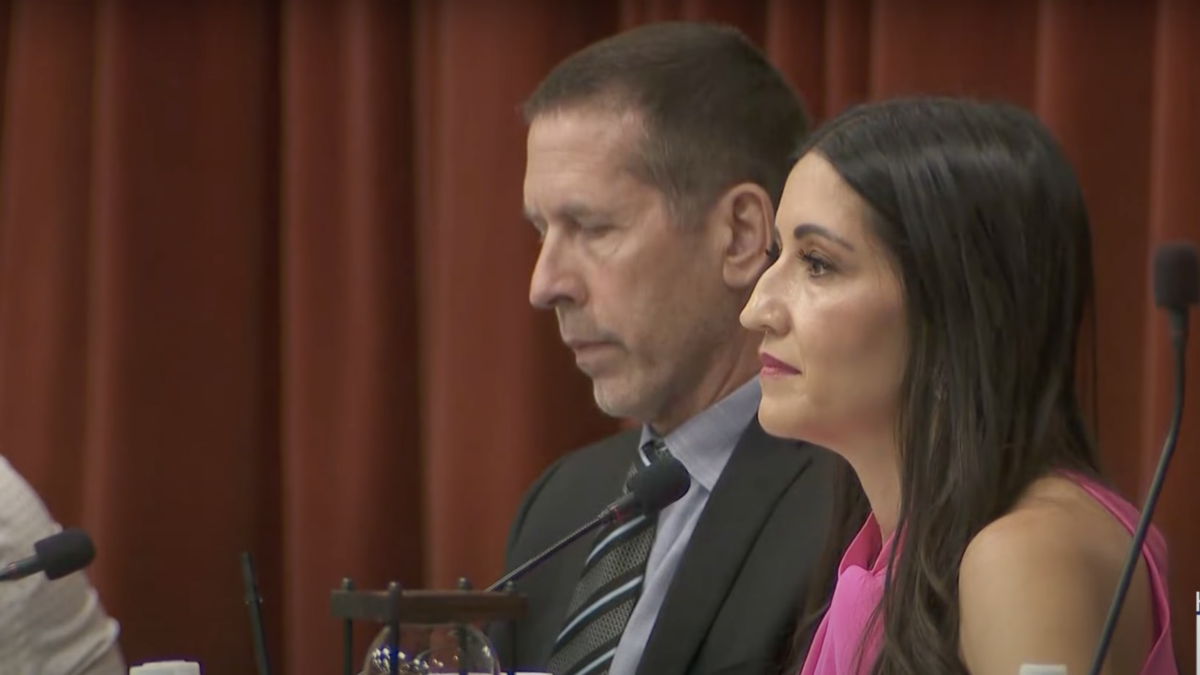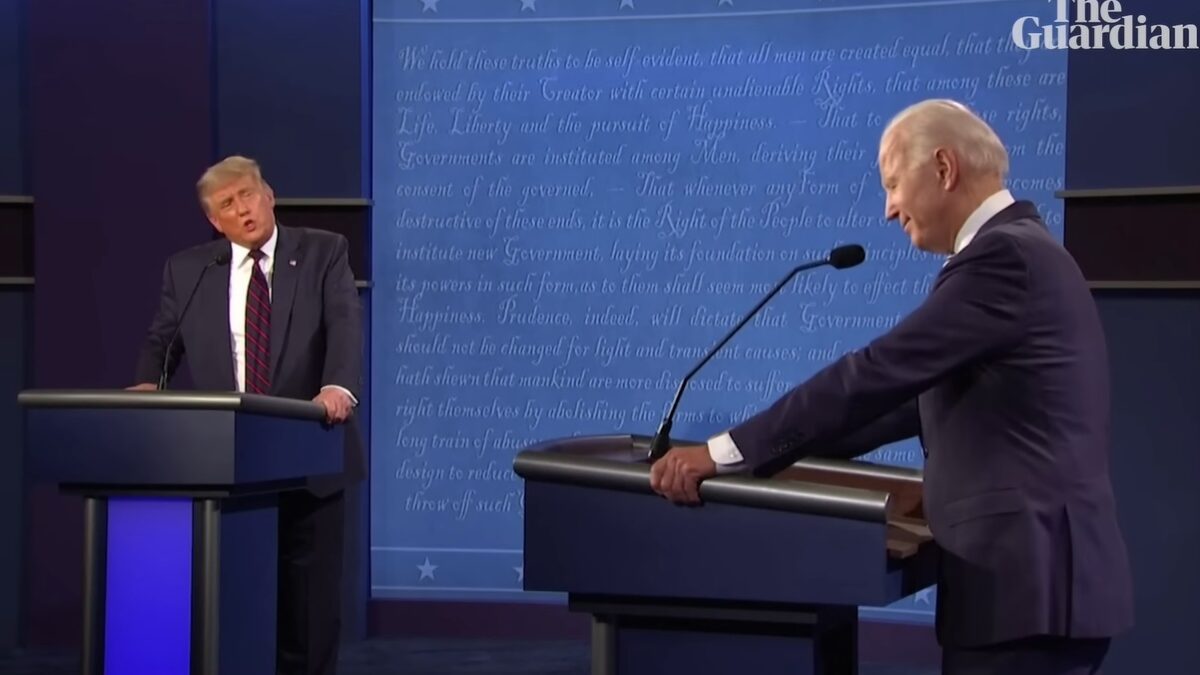A trove of documents obtained in part from a lawsuit filed by Missouri Attorney General Eric Schmitt — written up this week by Ken Klippenstein and Lee Fang at The Intercept — provides further proof that the government works hand in glove with the world’s biggest tech companies to remove, manage, curate, and otherwise censor what Americans can see and say online.
This isn’t a surprise. Former White House Press Secretary Jen Psaki said as much from the White House podium in July of 2021. Other documents obtained via Freedom of Information Act requests have added tangible evidence to her claim. But what makes this recent revelation significant is the extent to which the tech companies have been involved in developing government protocols, responding to government requests, and otherwise managing the cozy system by which the government uses the technology companies to police speech.
Facebook (which owns Instagram), for example, set up “a formalized process for government officials to directly flag content on … and request that it be throttled or suppressed through a special Facebook portal that requires a government or law enforcement email to use.” Prior to the 2020 election, major tech companies ranging from Facebook to LinkedIn, Discord, and Verizon Media met monthly with the FBI and the Department of Homeland Security, among others, to discuss handling what they considered to be election misinformation. The platforms generated reports and “timely responses,” including the removal of reported misinformation,” at the request of the government.
Tech executives, including the former Twitter head of legal, policy, trust, and safety, Vijaya Gadde, served on government advisory committees and drafted a report to the DHS sub-agency, the Cybersecurity and Infrastructure Security Agency, urging it to be more far-reaching in its efforts to shape the “information ecosystem” — that is, to be more aggressive in controlling the nature of what was said online as it related to “key democratic institutions, such as the courts, or by other sectors such as the financial system, or public health measures.”
In other words, this isn’t the government “bullying” or coercing the tech companies to do what they want. It’s a partnership between the federal government and the world’s biggest speech platforms to control the public conversation about the withdrawal from Afghanistan, the war in Ukraine, Covid-19, elections, and whatever else the Biden administration, in collaboration with Twitter, Facebook, Google, Microsoft, and Wikipedia, among others, decides is “appropriate” for the public to see.
The ramifications here are clear. When the government seeks to control or influence speech through willing private companies, the constitutional protections afforded to Americans become moot. “It is axiomatic,” law professor Jonathan Turley told The Intercept, “that the government cannot do indirectly what it is prohibited from doing directly. If government officials are directing or facilitating such censorship, it raises serious First Amendment questions.”
But for the government to so successfully subvert its constitutional restrictions requires two things: compliant tech executives and platforms powerful enough to actually control the discourse. The internecine debate on the right over whether these platforms constitute or control the public square is over; the administration clearly believes they are the public square, and it is executing policy with that understanding and with the cooperation of the tech companies.
But it’s clear there are wider ramifications than just speech. It wasn’t just the tech executives participating in public speech policing. Representatives from JPMorgan Chase attended a number of DHS meetings about federal efforts to censor disinformation on social media, suggesting a willingness of both the Biden administration and financial executives to pursue “de-banking” as a means of punishment for wrongthink. Indeed, both JPMorgan Chase and Paypal have been actively pursuing such measures.
The Tech Companies Are Not the Victims
As the political right moves to address the emergent threats of tech company power over speech, information, the mental health of children, and the market itself, it is worth dwelling on the nature of the partnership between tech companies and the government. There will be the temptation to simply blame the Biden administration for its overt attempts to exert political control over public speech. And that would not be misplaced. The Biden administration is one of the most illiberal regimes in modern memory and has made “othering” central to its political strategy.
But in fundamental ways, this does not make it unique. The government has always had an interest in controlling and coercing speech to suit the prevailing political interests of the powerful. From John F. Kennedy’s Project Mockingbird, to President Bush and Obama’s use of the Espionage Act against journalists, to the FBI spying on domestic dissidents, the government can always be counted on to act against the values of the First Amendment. That’s why the First Amendment exists.
Government aggression against speech, then, isn’t what’s new about this story. What is new, however, is the rise of globally powerful speech platforms that can literally reshape national and international discourse with the flick of an algorithm or a vague moderation gesture about the ubiquitous but always ambiguous rules about “trust and safety”
So to say this is solely about the government overlooks the willing role of the tech platforms themselves, who have been part of this project every step of the way — from its inception in 2018 under Trump DHS Secretary Kirstjen Nielsen to the launch of the ill-fated DHS disinformation board earlier this year.
But the tech companies are already making excuses. In emails obtained by The Federalist, Steve DelBianco, the president of Big Tech’s trade association NetChoice, states it is the intent of the companies to “focus conservative ire” away from the tech companies and instead solely toward the government.
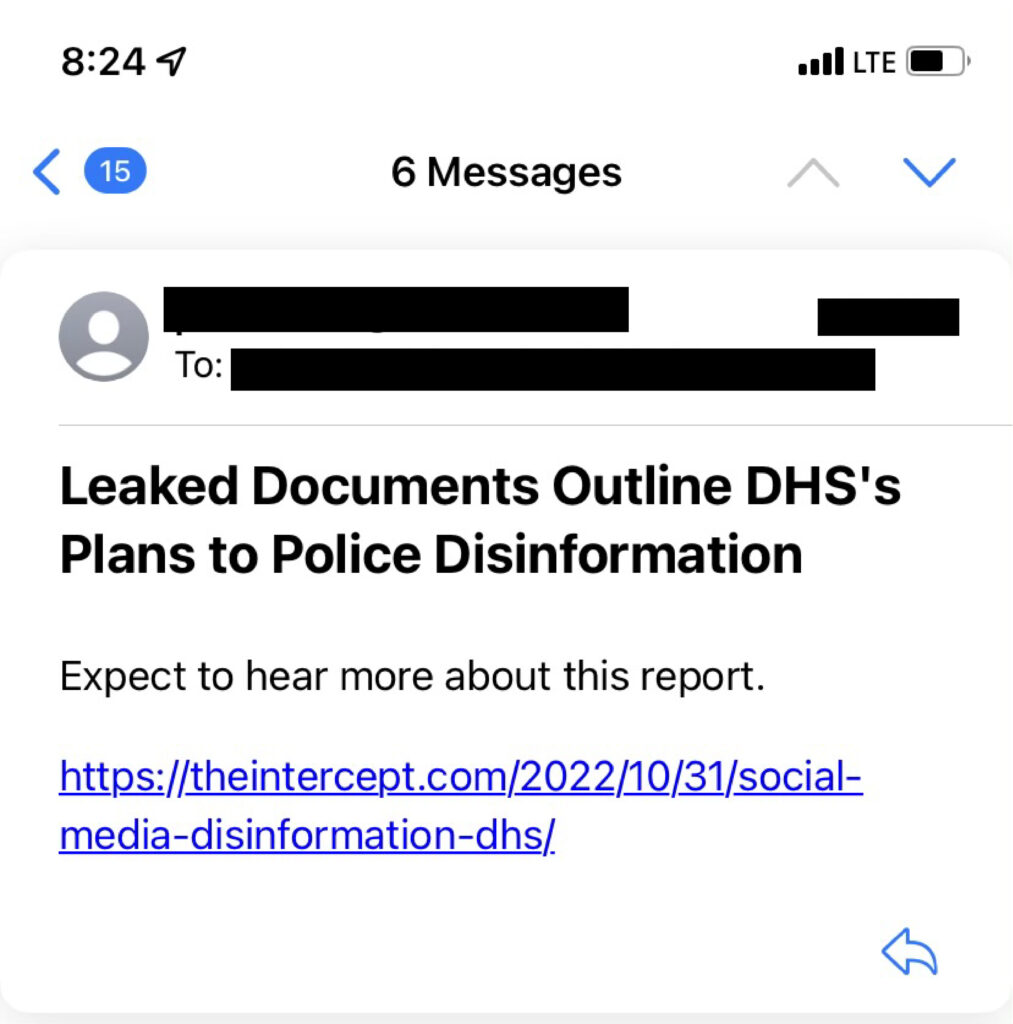
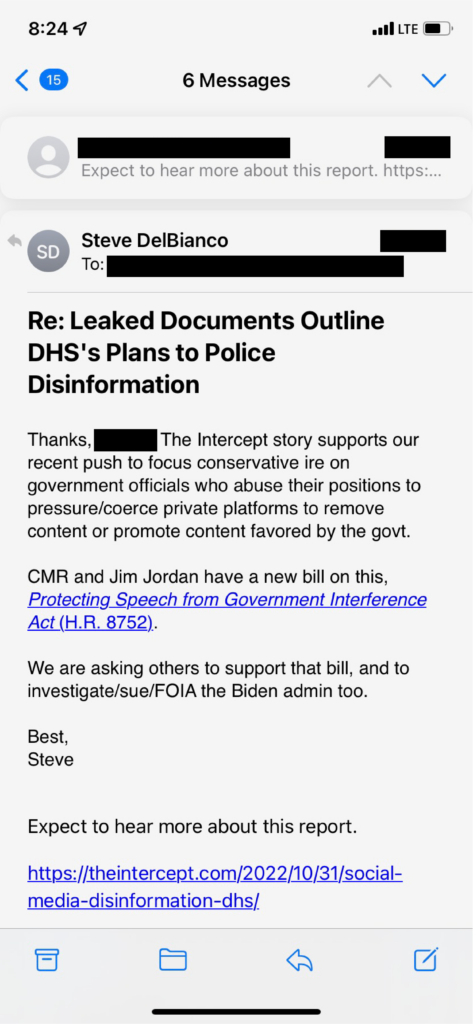
Carl Szabo, his deputy, dutifully tweeted out the sentiment casting the companies he represents as the victims of big government. (It should be noted that NetChoice also represents CCP-controlled TikTok.)
It should be very clear to GOP policymakers: The tech companies are not the victims, they are the collaborators. Without them, the government is far less effective at controlling speech online. And add to this what you don’t see in the documents: any evidence of pushback by these companies, any sentiments that they might be uncomfortable with the arrangement, and any unwillingness to perform the role of government-directed censor.
In fact, you see the opposite: Tech executives willingly participated in developing the protocols and councils used by the government to enact these policies. Moreover, there was no hesitancy from Facebook or Twitter when the FBI suggested they ban the New York Post story discussing Hunter Biden’s laptop in the lead-up to the 2020 election. Tech executives happily emailed with Anthony Fauci and Biden officials about how to control information related to the pandemic, vaccines, elections, and so on.
Government power will always be adversarial to the speech of free citizens. America’s First Amendment exists to act as a bulwark against this encroachment. But if the modern digital era has demonstrated anything, it is that private power over the world’s primary speech forums can also tyrannize free speech values. And when government power deputizes corporations to do what the government cannot, the threat is amplified — particularly when the private actors are willing and even eager participants.
A self-government cannot survive the two-pronged assault from the government and tech companies working together to suppress disfavored speech and control the public narrative. Contrary to the narrative of the Big Tech companies, addressing this problem requires taking on both heads of the hydra — the overly empowered government, and the powerful tech companies who are far too eager to wield their power for ideological ends.
